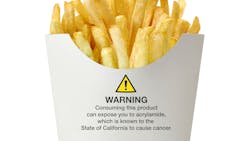Cautious Props to Prop 65’s Toxic Chemicals Crusade
An article from The Guardian notes that California has made significant strides in reducing toxic chemical exposure through its landmark Proposition 65 legislation. A recent peer-reviewed study revealed that levels of 37 toxic chemicals in residents' blood have declined after being designated under the law, which requires companies to warn consumers about harmful substances in products. The research showed substantial reductions in dangerous compounds including PFAS "forever chemicals", flame retardants, diesel chemicals, phthalates, and bisphenol.
The study found remarkable decreases in specific chemicals: PFOS and N-MeFOSAA dropped by 77%, PFOA by 62%, and bisphenol-A by 15%. Notably, these reductions were not limited to California, suggesting that companies nationwide may have reformulated products to comply with the state's stringent regulations.
However, the research also uncovered a complex chemical substitution problem. When one toxic chemical was restricted, manufacturers often replaced it with a closely related compound. For instance, as BPA levels decreased, levels of bisphenol S increased by 20%. Similarly, when DEHP was listed, exposures to DiNP initially rose before also being regulated.
